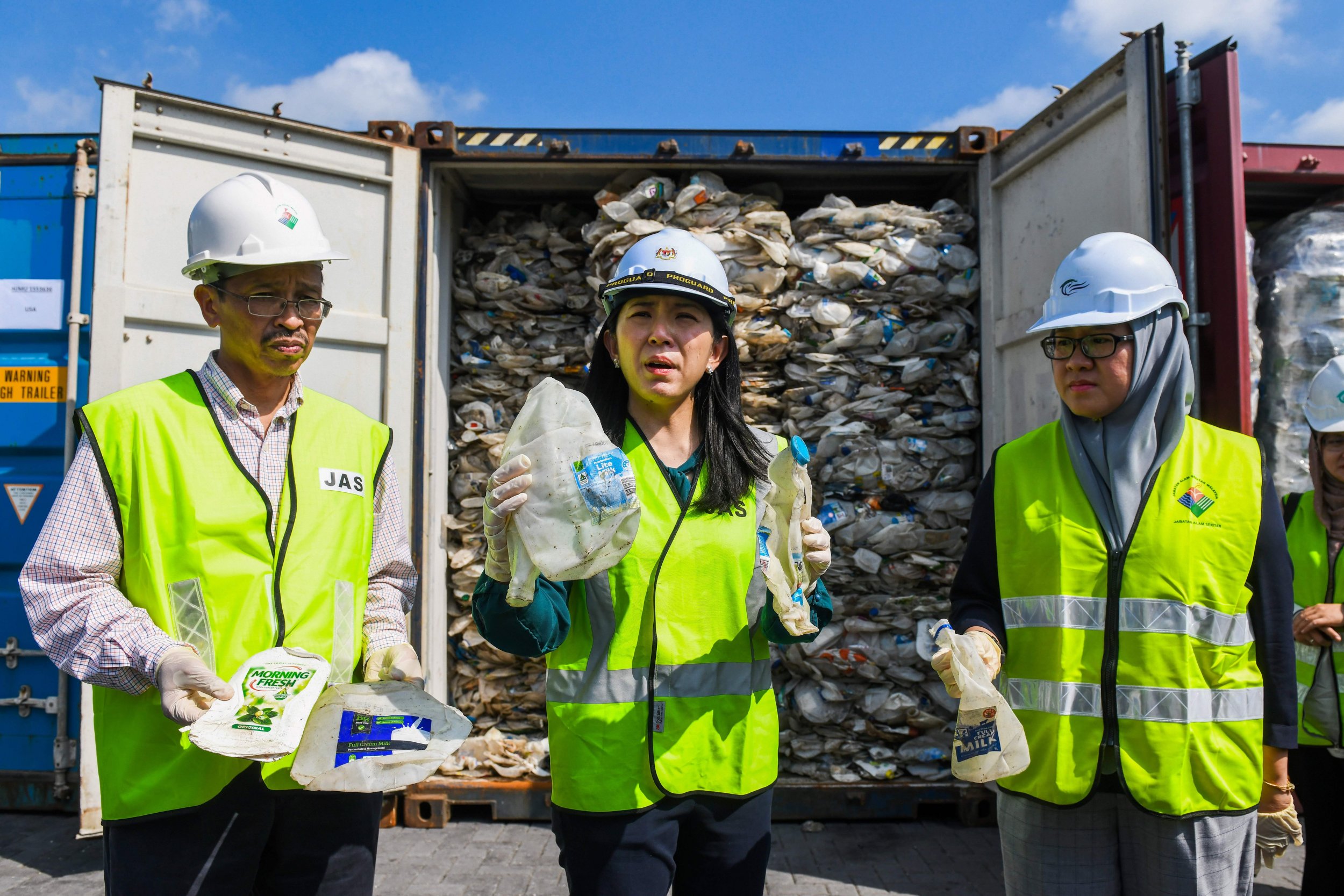
Countries in southeast Asia are increasingly determined to return tons of plastic rubbish back to North America and Europe. On Tuesday, Malaysia's environment minister, Yeo Bee Yin, announced the country would send 3,000 tons of plastic waste currently sitting in a Malaysian port to the countries that produced it.
The 60 containers include cables from the United Kingdom and electronic and household waste from North America, Japan, Saudi Arabia and China as well as CDs from Bangladesh and contaminated milk cartons from Australia.
Ten of the 60 containers will leave Malaysian shores within two weeks, Yeo Bee Yin said. "Malaysia will not be the dumping ground of the world," she explained in April, when a Malaysian government investigation found the U.S., Australia, Great Britain and Germany were illegally dumping rubbish into the country. "We will send back [the waste] to the original countries."
Malaysia has been at the forefront in the fight against foreign waste since last year, when it passed legislation aimed at stopping contaminated foreign waste making its way into its ports.
According to The Guardian, Kuala Lumpur has since returned five containers of illegal trash to Spain and has plans to send more waste back to the U.S., the United Kingdom and Australia.
According to figures released from Greenpeace, imports of plastic waste in Malaysia totalled 456,000 tons in the first six months of last year, compared to 168,500 in the whole of 2016. The U.S., the United Kingdom, Australia, Germany, Spain and France are by far the biggest exporters of trash.
The graphic below, provided by Statista, illustrates the biggest exporters of plastic waste and scrap in the world.

Thailand and Vietnam have also introduced similar regulation as countries in the region began fighting a problem, which first arose early last year when China stopped accepting plastic waste from the rest of the world.
The ban completely overhauled the recycling market, as more than 50 percent of the world's total exports of plastic, paper and metals were processed in China in 2016.
Last month Philippines President Rodrigo Duterte warned he would "declare war against Canada" if Ottawa refused to take back 69 containers of waste it sent to Manila between 2013 and 2014.
Philippine officials have claimed that a private firm falsely claimed that the containers only included recyclable plastic, while the garbage instead consisted of all sorts of waste, including plastic bags and adult diapers.
Last week, Duterte upped the ante, threatening to cut diplomatic ties with Canada if Ottawa did not take back the 1,500 tons of waste. Manila said it was prepared to take the trash to Canadian waters and dump it on Canada's "beautiful beaches."
"The Philippines as an independent sovereign nation must not be treated as trash by a foreign nation," said presidential spokesman Salvador Panelo.
In the same week, Australia sent crates of shredded municipal trash marked as fuel to the Philippines. Manila is currently working on sending it back.
A new amendment to the Basel Convention preventing unrecyclable and contaminated plastic waste to be dumped into developing countries without consent will come into effect next year.
Signed in 1992, the treaty is designed to reduce the movement of hazardous waste between nations and to prevent developed countries from transferring hazardous waste to developing nations.
This article was updated to include an infographic.
Uncommon Knowledge
Newsweek is committed to challenging conventional wisdom and finding connections in the search for common ground.
Newsweek is committed to challenging conventional wisdom and finding connections in the search for common ground.
About the writer
Dan Cancian is currently a reporter for Newsweek based in London, England. Prior to joining Newsweek in January 2018, he ... Read more





